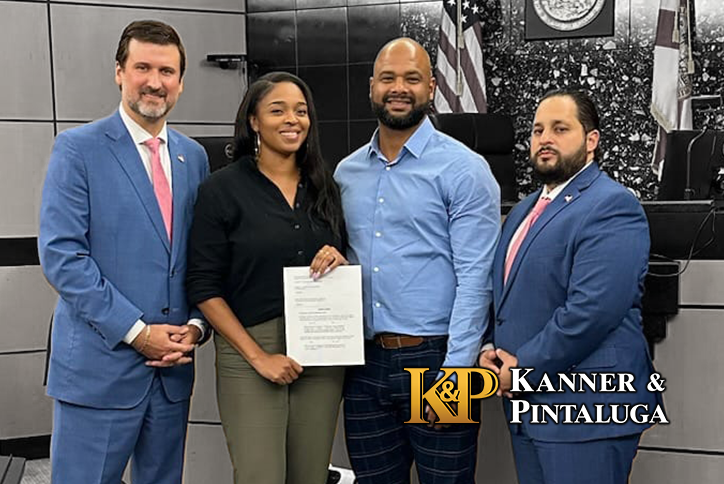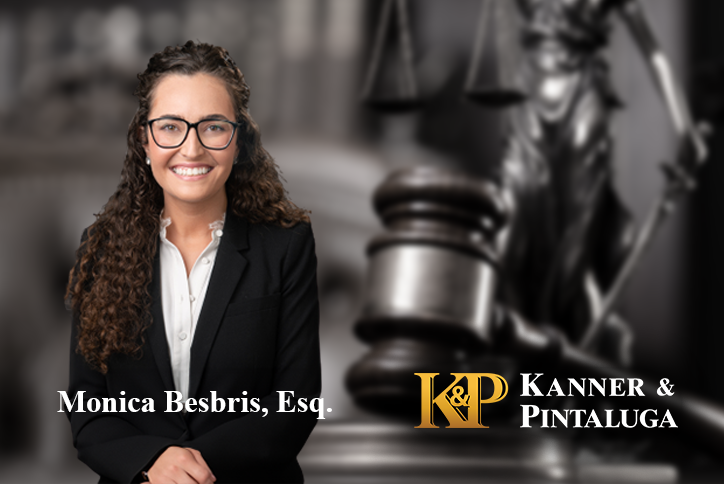- ESTAMOS AQUÍ PARA AYUDAR 24/7
- 888.283.3831
¿De quién es el gravamen? Clasificación de las obligaciones de los abogados hacia terceros titulares de gravámenes en casos de daños a la propiedad en Florida

Veredictos y acuerdos: El jurado de Palm Beach otorga a los propietarios daños totales en el techo causados por una tormenta climática severa
5 de julio de 2023
La abogada Monica Besbris nombrada presidenta del concurso de juicios simulados en memoria de E. Earle Zehmer de la FJA
17 de julio de 2023¿De quién es el gravamen? Clasificación de las obligaciones de los abogados hacia terceros titulares de gravámenes en casos de daños a la propiedad en Florida

Author: David Lipman, Esq., Chief Legal Officer, Kanner & Pintaluga
One of the most common scenarios any property damage lawyer or law firm must deal with is how to handle our clients’ lienholders. If the client’s property is secured by a mortgage, most commonly the mortgage will contain covenants purporting to create a claim against the insurance proceeds or at minimum a requirement to inspect the property before releasing any of the insurance proceeds to our clients. While the mortgagee isn’t technically a party to the client’s lawsuit, they do have a vested interest in the outcome as a result of their secured interest against the property. Further and most importantly, the client has a contractual obligation under the respective covenants contained in their mortgage that cannot be breached without potentially subjecting the client to default under the mortgage. In the event that there is a recovery obtained on behalf of the client against their insurance company in a property damage case, a lawyer can expect to encounter certain ethical pitfalls dealing with the mortgagee or even a third-party lienholder such as a mortgage servicing company.
Most often, we are representing our clients either on a contingency fee basis or based on a statutory fee agreement. Once the case resolves, and typically when there’s a settlement of the lawsuit, an insurance company that is aware of the existence of a secured interest – again usually a mortgage lender or mortgage servicing company – may issue one check in the names of all of the interested parties. That includes the insured, our client, the client’s mortgagee, and any other lienholders. The insurance company generally takes the position that the client and the other parties can sort out their interests among themselves.
What does a lawyer or law firm do when the lienholder places demands on the lawyer as a condition towards endorsing a check? Or, even worse, what does a lawyer or law firm do if the lienholder refuses to endorse or return the check and instead asks the lawyer or law firm to endorse the check over to the lienholder requesting that the lawyer or law firm seek their attorneys’ fees directly from the client instead of from the recovery? The lienholder will likely rely upon the covenants in the mortgage that allow them to hold the settlement funds for home repair in escrow and only disburse the funds once an inspection has confirmed that the property, and their security interest, has been fully restored.
Simply complying with the mortgagee’s demands raises a few ethical concerns each lawyer and law firm that handles property damage cases in Florida must be aware of. Specifically, Florida Bar Rule 4-1.5(f)(5), which governs contingent fees, states in pertinent part:
“In the event there is a recovery, upon the conclusion of the representation, the lawyer shall prepare a closing statement reflecting an itemization of all costs and expenses, together with the amount of fee received by each participating lawyer or law firm. A copy of the closing statement shall be executed by all participating lawyers, as well as the client, and each shall receive a copy. Each participating lawyer shall retain a copy of the written fee contract and closing statement for 6 years after execution of the closing statement. Any contingent fee contract and closing statement shall be available for inspection at reasonable times by the client, by any other person upon judicial order, or by the appropriate disciplinary agency.”
Thus, a lawyer may not disburse funds from a contingent fee case to anyone, including the lawyer themselves, without a closing statement signed by the client. Absent a signed closing statement, a lawyer may not disburse funds without obtaining a court order. Therefore, the lawyer or law firm should rely on Rule 4-1.5(f)(5) and push back on the lienholder’s demand to endorse the check to them or any other party without a signed closing statement. Any other result increases the likelihood that the lawyer or law firm has committed legal malpractice or at minimum violated the Rules of Professional Conduct. If the client agrees with the disbursement and signs a closing statement, then the lawyer or law firm may adhere to the client’s written instructions, but in absence of a signed closing statement from the client a lawyer must seek guidance from the court regarding the settlement funds via Interpleader.
If a lienholder demands that a lawyer collect their fees directly from the client rather than the recovery, a lawyer should simply rely upon the signed contingency fee agreement in order to comply with the Rules of Professional Conduct. Further, any departure from the terms of the contingency fee agreement may result in a breach of that agreement, in addition to any potential ethical concerns. Arguably, requiring a client to pay attorneys’ fees directly and not from the recovery as agreed upon would not be in the client’s best interest which as lawyers we have an obligation to maintain. Should a lawyer or law firm find itself in this situation, simply request the insurance company to issue two separate checks – one to the lawyer and the other to the client and lienholder. Of course, if there are multiple lienholders or additional payees, this situation becomes more complicated. The best way to confirm compliance with your ethical obligations, the Rules of Professional Conduct and duty to protect the client is to always have the client confirm the disbursement of the settlement funds in writing via a signed closing statement.
Consigue lo que mereces
Fundada en 2003, Kanner & Pintaluga es una firma de abogados NLJ500 y Mid-Market Pro 50 que ha recuperado más de $1 mil millones para clientes de daños a la propiedad y lesiones personales en todo el país. Con casi 100 abogados y más de 30 oficinas en todo el centro y sureste de los Estados Unidos, nuestro objetivo principal es lograr el resultado más favorable para nuestros clientes, quienes tienen el derecho absoluto de recibir la máxima compensación por sus daños. Si podemos ayudarlo o si simplemente desea hablar con un abogado para obtener la ayuda que necesita, no dude en contactarnos. Nuestro equipo siempre está disponible para discutir sus derechos y asegurarse de que usted y su familia estén protegidos.
